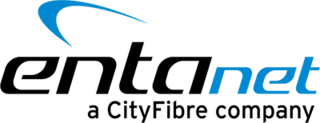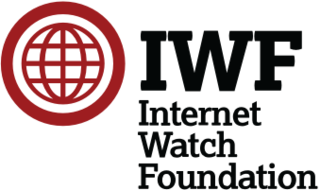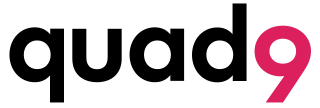Related Research Articles
Telecommunications in Austria encompass highly developed and efficient internet and telephone networks, complemented by a number of radio and television broadcast stations.

The Office of Communications, commonly known as Ofcom, is the government-approved regulatory and competition authority for the broadcasting, telecommunications and postal industries of the United Kingdom.
In the United Kingdom a Migration Authorisation Code (MAC) was a 17 to 19-character unique identifier code used by DSL customers when they wish to switch internet service provider (ISP). A MAC is generated by the actual telecommunication provider, identifies the local loop to be switched, and authorises the provider to switch the customer to the new ISP.
GreenNet is a not-for-profit Internet service provider based in London, England. It was established in 1985 "as an effective and cheap way for environmental activists to communicate". In 1987 the Joseph Rowntree Charitable Trust gave GreenNet a grant to enable it to bring a large number of peace groups online, and "After a few years they became one of the first internet service providers in Britain". GreenNet formed an international link with IGC and was a founder member of the Association for Progressive Communications, established in 1990. The registered charity GreenNet Charitable Trust was established in 1994 and owns GreenNet.
Internet censorship in the United Kingdom is conducted under a variety of laws, judicial processes, administrative regulations and voluntary arrangements. It is achieved by blocking access to sites as well as the use of laws that criminalise publication or possession of certain types of material. These include English defamation law, the Copyright law of the United Kingdom, regulations against incitement to terrorism and child pornography.

Entanet International Limited, stylised as Enta.net, is a British wholesale internet service provider (ISP), with its head office in Telford, Shropshire, England. Entanet International Limited is a member of the Internet Service Providers Association (ISPA).
DNS hijacking, DNS poisoning, or DNS redirection is the practice of subverting the resolution of Domain Name System (DNS) queries. This can be achieved by malware that overrides a computer's TCP/IP configuration to point at a rogue DNS server under the control of an attacker, or through modifying the behaviour of a trusted DNS server so that it does not comply with internet standards.
Server Name Indication (SNI) is an extension to the Transport Layer Security (TLS) computer networking protocol by which a client indicates which hostname it is attempting to connect to at the start of the handshaking process. The extension allows a server to present one of multiple possible certificates on the same IP address and TCP port number and hence allows multiple secure (HTTPS) websites to be served by the same IP address without requiring all those sites to use the same certificate. It is the conceptual equivalent to HTTP/1.1 name-based virtual hosting, but for HTTPS. This also allows a proxy to forward client traffic to the right server during TLS/SSL handshake. The desired hostname is not encrypted in the original SNI extension, so an eavesdropper can see which site is being requested. The SNI extension was specified in 2003 in RFC 3546

The Internet Watch Foundation (IWF) is a global registered charity based in Cambridge, England. It states that its remit is "to minimise the availability of online sexual abuse content, specifically child sexual abuse images and videos hosted anywhere in the world and non-photographic child sexual abuse images hosted in the UK." Content inciting racial hatred was removed from the IWF's remit after a police website was set up for the purpose in April 2011. The IWF used to also take reports of criminally obscene adult content hosted in the UK. This was removed from the IWF's remit in 2017. As part of its function, the IWF says that it will "supply partners with an accurate and current URL list to enable blocking of child sexual abuse content". It has "an excellent and responsive national Hotline reporting service" for receiving reports from the public. In addition to receiving referrals from the public, its agents also proactively search the open web and deep web to identify child sexual abuse images and videos. It can then ask service providers to take down the websites containing the images or to block them if they fall outside UK jurisdiction.
The Broadband Stakeholder Group is the UK government's advisory body on broadband. Created in 2001 by then Minister for E-Commerce and Competitiveness Stephen Timms, it provides a neutral forum for organisations across the converging broadband value-chain to discuss and resolve key policy, regulatory, and commercial issues, with the ultimate aim of helping to create a strong and competitive UK knowledge economy.
The Internet Service Providers Association of Ireland, or ISPAI, is a non profit company established in 1998 that represents various Irish Internet service providers. It is a member of EuroISPA.

The Digital Economy Act 2010 is an Act of the Parliament of the United Kingdom. The act addresses media policy issues related to digital media, including copyright infringement, Internet domain names, Channel 4 media content, local radio and video games. Introduced to Parliament by Lord Mandelson on 20 November 2009, it received Royal Assent on 8 April 2010. It came into force two months later, with some exceptions: several sections – 5, 6, 7, 15, 16(1)and 30 to 32 – came into force immediately, whilst others required a statutory instrument before they would come into force. However some provisions have never come into force since the required statutory instruments were never passed by Parliament and considered to be "shelved" by 2014, and other sections were repealed.
Google Public DNS is a Domain Name System (DNS) service offered to Internet users worldwide by Google. It functions as a recursive name server. Google Public DNS was announced on December 3, 2009, in an effort described as "making the web faster and more secure." As of 2018, it is the largest public DNS service in the world, handling over a trillion queries per day. Google Public DNS is not related to Google Cloud DNS, which is a DNS hosting service.
File sharing in the United Kingdom relates to the distribution of digital media in that country. In 2010, there were over 18.3 million households connected to the Internet in the United Kingdom, with 63% of these having a broadband connection. There are also many public Internet access points such as public libraries and Internet cafes.
The Internet Telephony Service Providers Association (ITSPA) is a British body representing providers of Internet Telephony services (VoIP).
The precise number of websites blocked in the United Kingdom is unknown. Blocking techniques vary from one Internet service provider (ISP) to another with some sites or specific URLs blocked by some ISPs and not others. Websites and services are blocked using a combination of data feeds from private content-control technology companies, government agencies, NGOs, court orders in conjunction with the service administrators who may or may not have the power to unblock, additionally block, appeal or recategorise blocked content.
A public recursive name server is a name server service that networked computers may use to query the Domain Name System (DNS), the decentralized Internet naming system, in place of name servers operated by the local Internet service provider (ISP) to which the devices are connected. Reasons for using these services include:
DNS over HTTPS (DoH) is a protocol for performing remote Domain Name System (DNS) resolution via the HTTPS protocol. A goal of the method is to increase user privacy and security by preventing eavesdropping and manipulation of DNS data by man-in-the-middle attacks by using the HTTPS protocol to encrypt the data between the DoH client and the DoH-based DNS resolver. By March 2018, Google and the Mozilla Foundation had started testing versions of DNS over HTTPS. In February 2020, Firefox switched to DNS over HTTPS by default for users in the United States. In May 2020, Chrome switched to DNS over HTTPS by default.
DNS over TLS (DoT) is a network security protocol for encrypting and wrapping Domain Name System (DNS) queries and answers via the Transport Layer Security (TLS) protocol. The goal of the method is to increase user privacy and security by preventing eavesdropping and manipulation of DNS data via man-in-the-middle attacks. The well-known port number for DoT is 853.

Quad9 is a global public recursive DNS resolver that aims to protect users from malware and phishing. Quad9 is operated by the Quad9 Foundation, a Swiss public-benefit, not-for-profit foundation with the purpose of improving the privacy and cybersecurity of Internet users, headquartered in Zürich. Quad9 is entirely subject to Swiss privacy law, and the Swiss government extends that protection of the law to Quad9's users throughout the world, regardless of citizenship or country of residence.
References
- ↑ "ISPA Website". ISPA. Retrieved 9 May 2013.
- ↑ "The 2012 ISPA AwardsWinners". ISPA. Retrieved 3 July 2012.
- ↑ "The Best Hosting Deals in 2016". hostingmanual.net. Retrieved 20 April 2016.
- ↑ "ISPA announces finalists for 2019 Internet Heroes and Villains: Trump and Mozilla lead the way as Villain nominees". ISPA. Retrieved 21 September 2019.
- ↑ Arif, Shabana (5 July 2019). "Mozilla Named an 'Internet Villain' for Protecting Your Privacy by UK ISP Association". Gizmodo UK. Archived from the original on 21 September 2019. Retrieved 21 September 2019.
- ↑ Dunn, John E (8 July 2019). "ISPs call Mozilla 'Internet Villain' for promoting DNS privacy". Naked Security. Sophos. Archived from the original on 21 September 2019. Retrieved 21 September 2019.
- ↑ Whittaker, Zach (5 July 2019). "Internet group brands Mozilla 'internet villain' for supporting DNS privacy feature". TechCrunch. Retrieved 21 September 2019.
- ↑ Claburn, Thomas (6 July 2019). "DoH! Secure DNS doesn't make us a villain, Mozilla tells UK broadband providers". The Register. Retrieved 21 September 2019.
- ↑ Jackson, Mark (10 July 2019). "ISPA Pulls UK Internet Villain Category Over Mozilla DoH Fallout". ISPreview. Retrieved 21 September 2019.
- ↑ "ISPA withdraws Mozilla Internet Villain Nomination and Category". ISPA. Retrieved 21 September 2019.